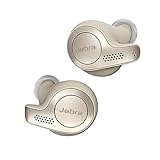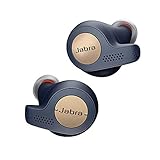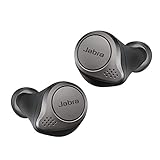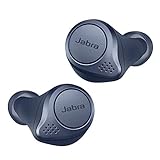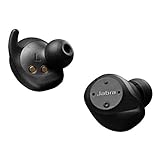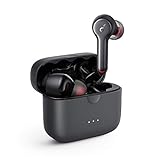JBL Tune 130NC vs Nothing Ear 1 - Where are the differences?
Where are the differences?
There are a few differences between the two True-Wireless Headphones. Let's take a closer look at the points in comparison between the Tune 130NC from JBL and the Nothing Ear 1.
Which headphones have the better battery life?
A crucial point for headphones without cables is always the battery life. Here many headphones differ and the capacity grows from year to year. The JBL Tune 130NC trumps with a better battery life of up to 10,0 hours. The battery life of the Nothing Ear 1 is up to 5,7 hours. Depending on the settings, the battery life turns out significantly lower. The specifications always refer to the ideal case.
For true-wireless headphones, an additional battery in the case has become popular. This way the headphones gain more battery life and can be conveniently charged on the go. In terms of overall performance, the JBL Tune 130NC* offers more at this point. With Case, the headphones have a battery life of up to 40,0 hours. The Nothing Ear 1 comes insgsamt to a battery performance of up to 34,0 hours.
Wie werden die Kopfhörer geladen?
Bei dem Ladenanschluss setzten beide Geräte auf die gleiche Technologie. Beide werden per USB-C geladen.
Ein höhrer Standard ist hier immer besser. Die Ladedauer wird verkürzt und du kannst, wenn alle Geräte aktuell sind, die gleichen Kabel nutzen.
Die Ladedauer der Geräte:
- JBL Tune 130NC*: 5,0 minutes Ladezeit für 1,0 hours Akkulaufzeit
- Nothing Ear 1*: 10,0 minutes Ladezeit für 0,8 hours Akkulaufzeit
Noise Cancelling: ANC
The active noise cancellation function is becoming increasingly important, but this is by far not supported by every headphone. Here we have Active Noise Cancelling (short: ANC) on board for both headphones, JBL Tune 130NC and Nothing Ear 1.
How many microphones are there?
Let's move on to the topic of microphones, which also have an impact on voice quality and noise cancellation. Most headphones no longer relied on just one microphone, but several. The JBL Tune 130NC* here offers 4 pieces per side more than the Nothing Ear 1 with 3 microphones per earbud.
Welche Bluetooth Version ist verbaut?
On the subject of Bluetooth, we don't have any differences between the JBL Tune 130NC and Nothing Ear 1. Both TWS headphones run via Bluetoot 5.2. In general, a newer version is always better. Here, the Bluetooth affects the quality of the transmission and the energy consumption.
Driver size of the headphones
.The larger the driver of a headphone, the better it can reproduce low tones (bass). At this point, the two headphones do not differ. Both have a driver size of 10 mm.
Are there changeable attachments?
For better carrying comfort, both wireless headphones from the comparison offer interchangeable attachments. The number of pieces is also identical with . Thus, we have no winner and no loser at this point.
Are the headphones waterproof?
Both headphones from the comparison have IPX4 certification. However, an IP certification does not directly mean waterproof. Depending on the certification, the headphones are only water- or sweat-resistant. However, a higher number in the certification is generally better. With Bluetooth headphones there is also the problem that Bluetooth is disturbed by water. Thus, the use when swimming is only possible with special headphones.
